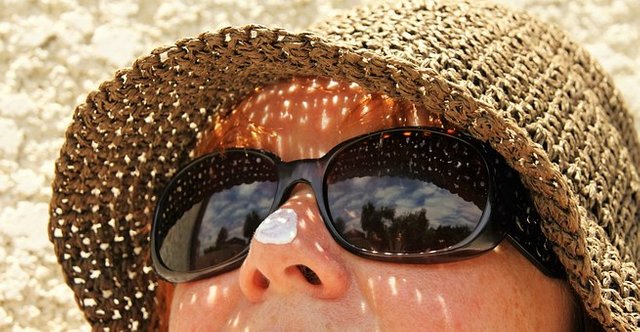Is Sunscreen Harming Your Health?
A fear of skin cancer and growing obsession with anti-aging has caused many Americans to treat the sun like the plague, slathering on SPF 50 sunscreen during the summer months and hiding under wide-brimmed hats and shady umbrellas. Then comes winter, and many of us find ourselves cooped up indoors or outside under gray, sunless skies. In recent years, the medical community has started to recognize an increase in Vitamin D deficiency associated with this decreased exposure to sunlight. In fact, more than 50% of the world’s population is now at risk of Vitamin D deficiency.

image by pixabay.com
The Sunlight/Vitamin D Connection
While lack of Vitamin D in foods and poor dietary supplementation are partly to blame, lack of sun exposure is considered by some to be the major culprit in the growing rise of Vitamin D deficiency. Sunlight is normally a major source of Vitamin D for humans, but protective clothing and sunscreens block UVB rays that trigger the photosynthesis of Vitamin D (D3 to be exact). Vitamin D has many health benefits, including prevention of rickets in young children, osteoporosis in adults, and many types of cancers – including breast, colon, kidney, ovarian, and endometrial cancers – so maintaining a healthy amount of Vitamin D in our bodies is essential.
Everything in Moderation
No one in the medical community advocates eliminating sunscreen from your daily routine. What some doctors and researchers are recommending, however, is to practice moderation, about 15-20 minutes outdoors without protection a couple times a week. While this may seem like radical thinking, it’s thought that this is just enough sun to help our bodies manufacture Vitamin D and maintain stores for less sunny seasons, especially winter.
The Sun Alternative
If you don’t feel comfortable getting more natural sun exposure, taking a Vitamin D supplement is another alternative. Look for Vitamin D3, which is a more potent form, and be aware that combining it with Vitamin A in a multivitamin can offset many of the vitamin’s benefits. You will also find Vitamin D naturally in salmon, tuna, and other oily fish, or in fortified foods such as cereals and milk.
Posted using Partiko Android
Thanks for sharing!
Posted using Partiko Android